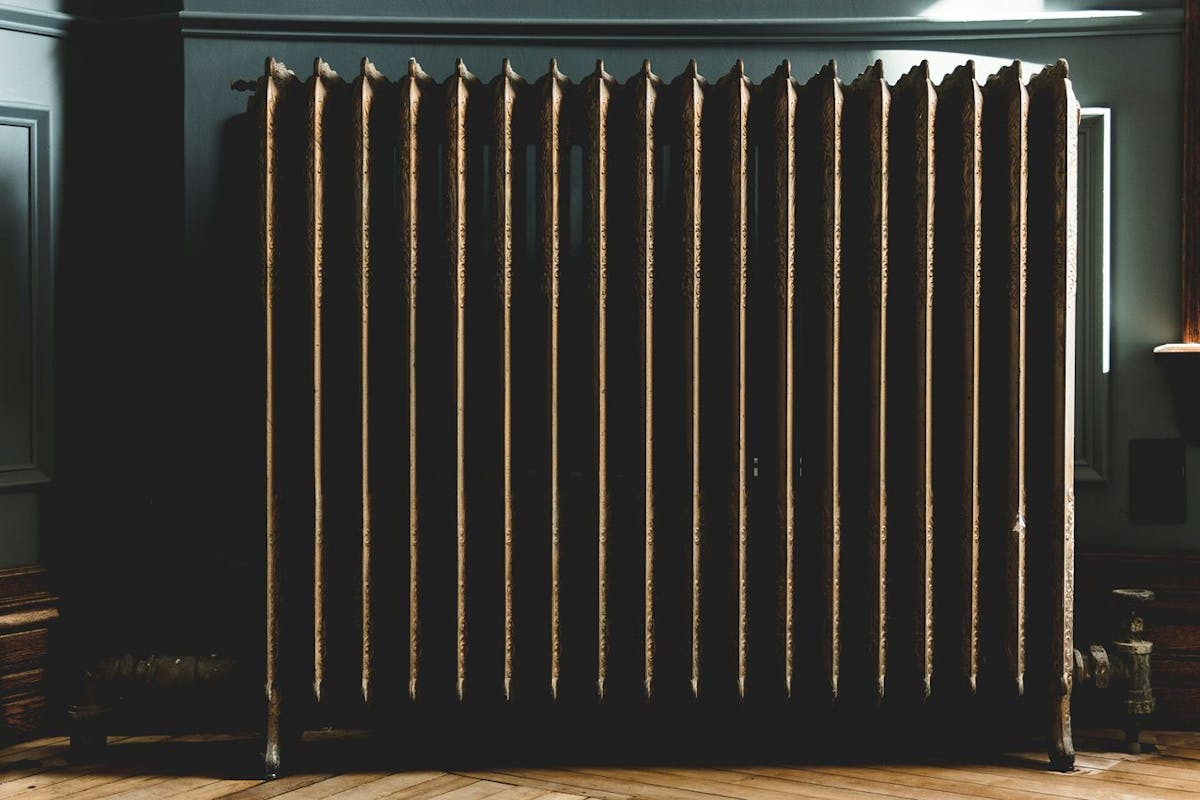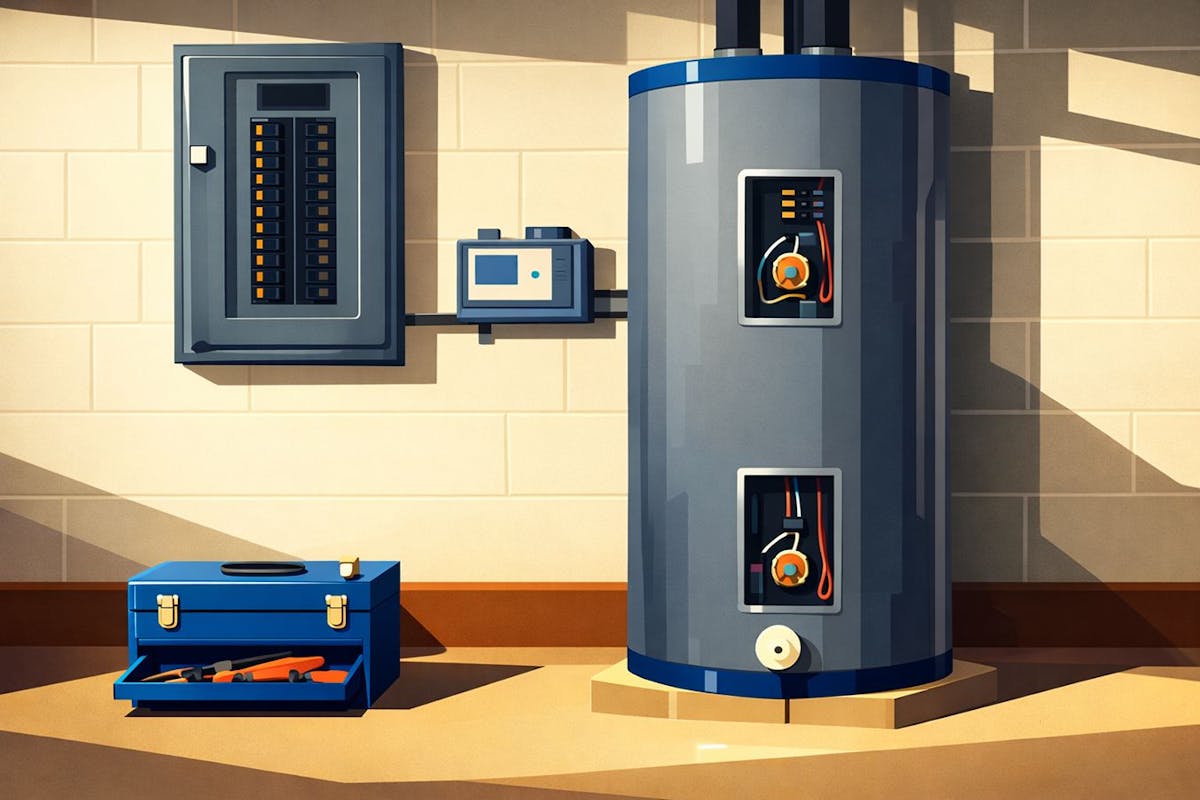Heat Pumps vs. Heating Oil: Making the Cost-Effective Choice
Last edited
Author
Andrew Giermak
Solar and Electrification Writer and Editor
Editor
Andrew Blok
Electrification and Solar Writer and Editor

For homeowners in colder climates who rely on heating oil, the reasons to switch to a modern heat pump may not seem obvious. But the efficiency and heating power of heat pumps have changed over the years. Modern heat pumps now offer an energy-efficient, all-in-one solution for clean and affordable home heating and cooling. With lower energy costs, less maintenance, and no on-site fuel storage, a heat pump could be the best option for your home.
So how does a heat pump compare to a heating oil system, and what factors should you consider before making the switch?
See how much you can save with a new HVAC system from Palmetto
What is a heat pump?
Heat pumps work by transferring thermal energy, or heat, into or out of a home or building, providing heating and cooling in one system. Heat pumps move heat with a refrigerant moving through a sealed coil and a cycle of compression (to heat up) or expansion (to cool down). A fan sends air over the coil to heat or cool the house.
Heat pumps are very energy efficient and can be complete, year-round heating and cooling systems for many homes in nearly every region of the United States. Most residential heat pumps are air-source heat pumps, transferring heat between a home and the outside air. There are ground-source or geothermal heat pumps, too, which transfer heat between a house and the ground. Heat pumps can work in a ducted or ductless, or mini-split, system.
Air-source heat pumps typically run at about 300-400% efficiency, meaning they transfer three or four times the heat energy as the energy (electricity) they consume. Geothermal heat pumps can reach over 500% efficiency.
What is heating oil?
Heating oil is refined crude oil similar to diesel fuel. There may be additives meant to help prevent corrosion or improve efficiency, and some heating oil may be blends of oil and biofuels.
In the US, heating oil is used the most in the northeast. According to the Energy Information Administration, 82% of the homes using heating oil as primary heating fuel are in New England, New York, New Jersey, and Pennsylvania. Heating oil can be used for space heating and water heating.
A home uses about 800-1,200 gallons of heating oil a season according to Pioneer Oil and Propane in Massachusetts. Heating oil cost about $3.73-$3.92 a gallon in the northeast in early 2025 according to the Energy Information Administration. That’s a total fuel cost of $2,984-$4,704 per heating season.
The main advantage of using heating oil for home heating is the heating power it puts out. Heating oil creates a lot of heat energy per BTU (British thermal unit). Fast, powerful heat is important in a New England winter. Heating oil burner systems are durable, often lasting longer than 25 years. Heating oil, in its liquid form, isn’t explosive and won’t ignite until it’s in the burner system, so some consider it safer than natural gas or propane.
Drawbacks of heating oil include the cost and price volatility. Experienced heating oil users often buy it in the offseason and avoid the demand of the fall and winter. You must store heating oil in a large tank on your property, which can add maintenance needs, cost, and risk of leaks or spills. While providing dependable heat, heating oil is not efficient with an energy efficiency rate of about 65-90%. While there is cleaner heating oil now such as biofuel, it emits greenhouse gases, carbon dioxide, carbon monoxide, and particulates.
See how much you can save with a new HVAC system from Palmetto
Heat pump vs. heating oil
Modern heat pumps are an efficient heating and cooling option, including in the cold-weather areas where heating oil was and is a traditional heating choice. Cold climate heat pumps are tested and certified to work and maintain a high level of efficiency down to very cold temperatures.
Going from heating oil to a heat pump is shown, in data from the U.S. Department of Energy, to save $923-$2,822 a year in utility costs. The savings tend to be more in homes with better insulation, depending on the age and efficiency of the old heating system, and electricity rates with your utility.
When would switching to an electric heat pump be a better year-round system for your home?
| Heat pump | Heating oil | |
|---|---|---|
| **Efficiency ** | Often 300-400%, can be over 500% especially with geothermal heat pumps | 65-90% |
| Functionality | Heating and cooling | Heating |
| Fuel source | Electricity | Fossil fuel |
| Fuel tank | No | Yes |
| Emissions | Low (with grid electricity) or none (with home solar panels) | Higher |
Will a heat pump work for you?
More homeowners in all regions of the country are switching to heat pumps to save money and energy. It’s important to consider your energy costs, incentives which may be available for a heat pump, and your usual heating and cooling needs. If you’re looking to avoid the upfront cost or the hassle of scheduling maintenance and service, a heat pump lease, such as Palmetto's Comfort Plan, could work best for you.
A heat pump could make even more sense and be part of bigger savings if you’re combining it with home solar power and home electrification plans. If you’re interested in saving money on your energy needs in all sorts of ways, and with new energy-saving devices, including home heat pumps, download the new Palmetto app. You can learn more and get estimates customized to your property with our HVAC advisor tool or our solar savings tool.
See how much you can save with a new HVAC system from Palmetto
Frequently asked questions
If my home uses heating oil, will switching to a heat pump save me money?
Going to a heat pump vs. oil heat could save you money. Going to one system, using electricity, is likely to be less expensive than having central AC and an oil or gas furnace. Other factors include the price of heating oil, energy efficiency for years to come, installation costs, incentives, and your heating and cooling usage.
What’s the most efficient way to heat a home?
Heating with a heat pump is the most energy-efficient heating system for the large majority of homes. It’s possible to make it more energy efficient, cost effective, energy independent, and environmentally beneficial with home solar power.
Lead photo by Alex Perz via Unsplash


